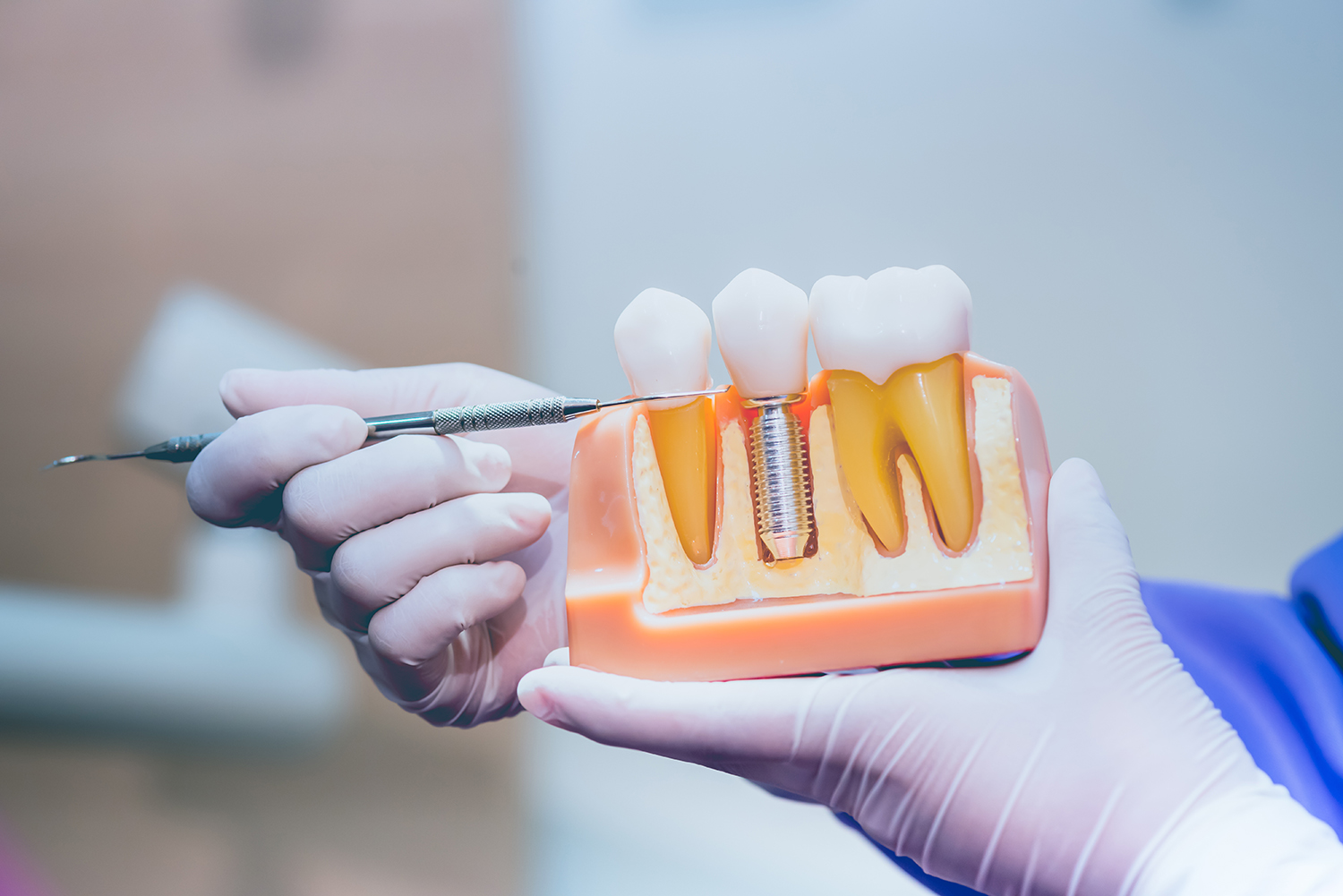
Dental Implant vs. Dental Replacement: Which Is Better for You?
Losing a tooth can go beyond just affecting the smile. It can impact your ability to chew, speak, and even maintain overall oral health. Fortunately, modern dentistry offers several tooth replacement options, with dental implants and traditional dental replacements (such as dentures and bridges) being the most popular choices. But which one is right for you?
Understanding the differences, benefits, and limitations of each option can help you make an informed decision that suits your needs and lifestyle.
Understanding Tooth Replacement Options
While looking for replacement options for one missing tooth, the patients would mainly consider two options:
- Dental Implants: The fixed option, surgical placement of a titanium post into the jawbone to act as an artificial tooth root, topped with a crown looking somewhat like a natural tooth.
- Traditional Dental Replacements: These include bridges (relying on adjacent teeth to help with anchoring) and dentures (removable prosthesis to replace multiple missing teeth).
Now both options aim to restore function and appearance, although they differ in terms of duration, convenience, and overall impact on oral health.
What Is a Dental Implant?
A dental implant is a structure that takes after a natural structure. In essence, it's a tooth that is permanent in nature. It consists of:
- A titanium post that attaches to the jawbone and gives stability to the artificial tooth.
- An abutment that holds the replacement tooth.
- A dental crown that looks and functions just like a natural tooth.
Pros of Dental Implants
- More Durable: A properly cared tooth can last a lifetime without problems.
- Natural: Blend seamlessly into natural teeth.
- Prevent Bone Resorption: An implant is a stimulation for the jawbone.
- Preservation of Adjacent Teeth: Unlike a bridge, implants don't require adjacent teeth to become supports for treatment.
- Restoration of chewing and speech function: Stable with all functions of natural teeth.
Cons of Dental Implants
- Surgery Only: The placement involves minor surgery with a short healing time.
- Expensive: They do cost a lot of money upfront, but in the long run they are quite economical.
- Not For Everyone: Bone density must be sufficient for successful placement.
What Are Traditional Dental Replacements?
These surgical treatments permit missing teeth to be replaced with non-surgical replacements, such as a bridge or a denture. Dental bridges fill a gap by anchoring a false tooth to adjacent natural teeth.
These are removable replacements of several missing teeth: complete or partial dentures.
Benefits of Traditional Replacements
- Cost-Effectiveness: On average, a lower initial investment than implants.
- No Surgery Needed: Invasive surgery is not required.
- Faster than Implants: Bridges and dentures are fitted in a matter of weeks.
- Wear Out Soon: Bridges and dentures need to be replaced every 5–10 years.
- Bone Loss Over Time: They do not stimulate the jawbone, which erodes little by little.
- Can Damage Surrounding Teeth: The adjacent teeth may need to be filed to accept a bridge.
- Reduced Stability: Dentures might slip while a person eats or talks, causing pain and discomfort.
Key Differences Between Dental Implants and Traditional Replacements
| Feature | Dental Implants | Traditional Replacements (Bridges/Dentures) |
| Longevity | Can last a lifetime | Needs replacement every 5-10 years |
| Procedure | Surgical placement in jawbone | Non-surgical; uses existing teeth for support |
| Jawbone Preservation | Prevents bone loss | No stimulation, may lead to bone deterioration |
| Comfort & Stability | Feels like a natural tooth, no movement | Dentures may shift; bridges depend on other teeth |
| Impact on Other Teeth | No effect on surrounding teeth | Bridges require reshaping of adjacent teeth |
| Cost | Higher upfront, cost-effective long-term | Lower initial cost but requires replacements |
Which Is Right For You?
When making a choice between dental implants and traditional replacements, everything comes down to a blend of certain factors:
- Finances: Implants may be more expensive upfront but realize a lesser maintenance cost later on.
- Oral Health Condition: Bone density ensures a better fit of the implants.
- Amount of Missing Teeth: Implants are more suited for single-tooth restorations, while dentures may be better for multiple missing teeth.
- Longevity: If you would like something longer-lasting and resistant to any early wear or damage, the ideal choice would be implants.
- Personal Comfort: Some may feel discomfort with a bridge or dentures, while the implant would feel the most natural.
Consultation with the dentist can help in finding out which option works best for you.
Invest in Your Smile with the Right Solution
While traditional replacements and dental implants serve the same purpose of addressing missing teeth, implants have better functionality, comfort, and durability. Knowing whether the former is suitable for an individual while the latter caters best to those seeking a permanent and highly-functioning, almost natural alternative.
If you, understandably, do not know which way to go, the first place to look would be a professional or expert, as they will help in reinstating your bright smile. Get in touch with Dr. Deepak Victor, an experienced objective assessment of oral health in Chennai. He will, thus, direct you in making the decision that is best for the long-term health of your teeth.
Published on: March 26, 2025

